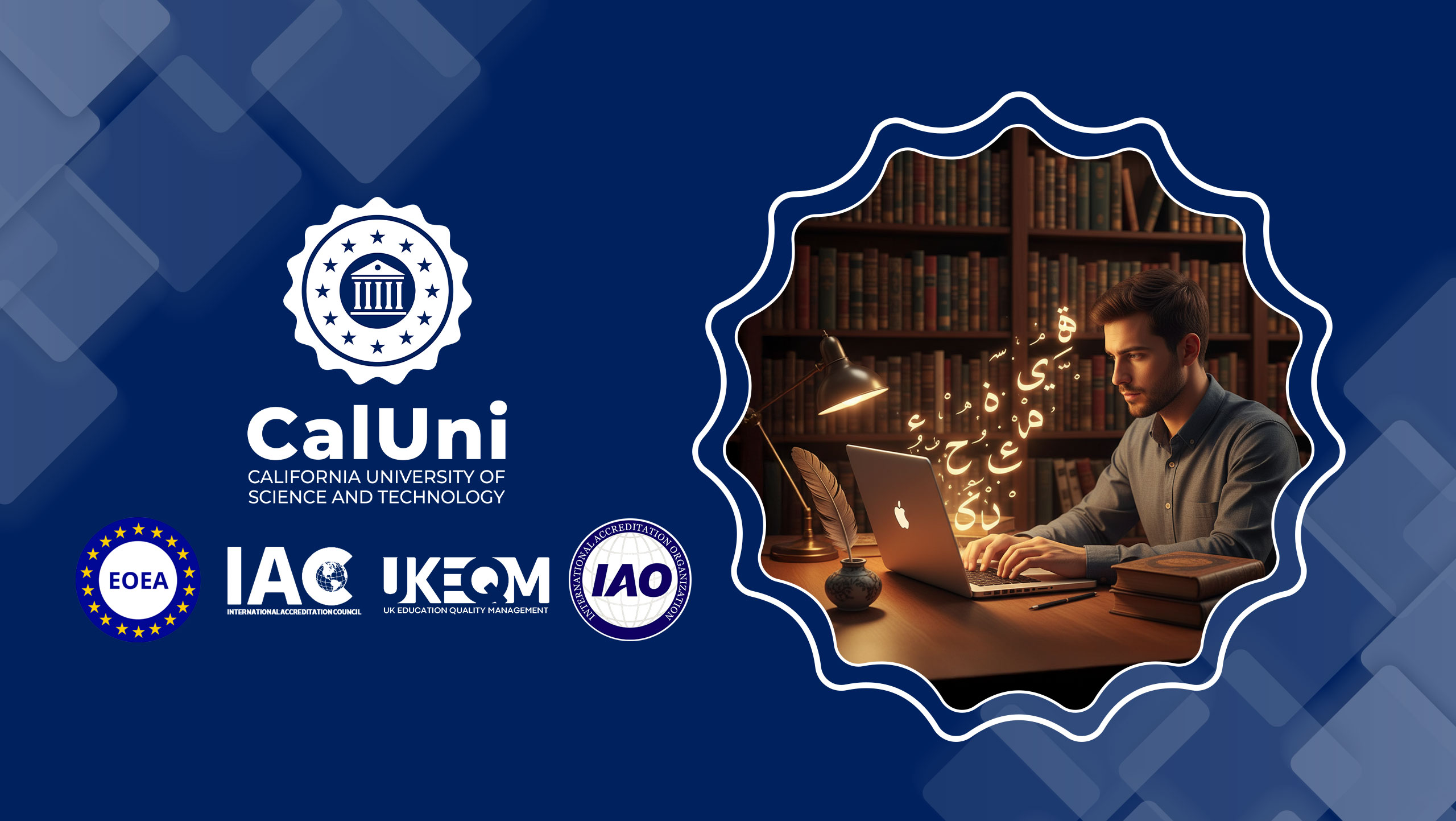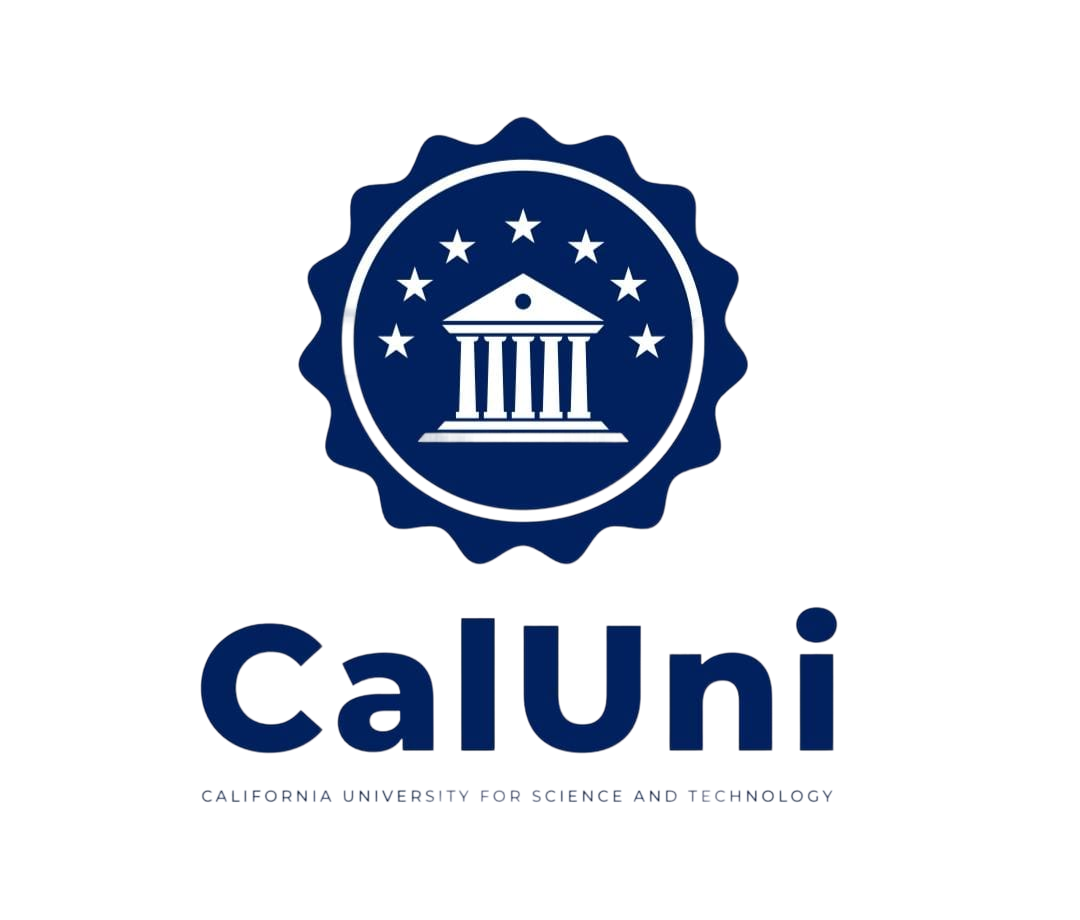
Bachelor of Arts in Arabic Language and Literature
I. Program Introduction:
The Bachelor of Arts in Arabic Language and Literature aims to prepare specialized linguistic professionals who possess a high level of proficiency in Standard Arabic in reading, writing, and speaking, as well as a deep understanding of the structure of the Arabic language and its disciplines, and of major classical, heritage, and modern literary texts. The program also equips students with research, analytical, teaching, and linguistic editing skills.
The program is offered in line with recognized higher education standards (120 credit hours over eight semesters) and accords special attention to the Qur’anic text through two consecutive courses in Qur’anic parsing and grammatical analysis, in addition to courses in grammar, morphology, rhetoric, literary criticism, linguistics, textual heritage editing, and discourse analysis.
The program responds to labor market needs in the fields of education, media, culture, and scientific research, and prepares students for advanced professional and academic pathways in Arabic, Islamic, and linguistic studies.
II. Main Areas of Study in the Program:
The program is structured around a set of integrated academic domains, the most prominent of which are:
1. Arabic Language Sciences
• Grammar and morphology at progressive levels (basic, intermediate, advanced).
• Arabic philology, general linguistics, and applied Arabic linguistics.
• Contemporary issues in the Arabic language, Arabization and terminology, and Arabic in digital media.
2. Qur’anic and Linguistic Studies
• Qur’anic and Hadith texts: reading and general linguistic analysis.
• Parsing and Grammatical Analysis of the Qur’an I & II:
• Study of the grammatical analysis (iʿrāb) of selected verses, advanced syntactic issues related to the Qur’anic text, and their connection to classical and modern grammatical schools.
3. Classical and Modern Arabic Literature
• Texts from the pre-Islamic, early Islamic, Umayyad, and Abbasid periods.
• Modern Arabic poetry, as well as the Arabic short story, novel, and drama.
• Andalusian literature, Mahjar (émigré) literature, children’s and young adult literature, and comparative literature.
4. Rhetoric, Criticism, and Textual Analysis
• Rhetorical sciences: maʿānī (semantics in context), bayān (figurative expression), and badīʿ (embellishment).
• Classical Arabic literary criticism and modern critical approaches.
• Analysis of poetic and prose texts, and analysis of literary, media, and religious discourse.
5. Heritage, Textual Editing, and Scientific Research
• Principles and methodologies of editing Arabic textual heritage.
• Research methods in language and literature, academic writing, and research ethics.
• A graduation research project in language, literature, or Qur’anic-linguistic studies.
6. Professional and Educational Skills
• Correct writing skills, orthography, and linguistic editing.
• Public speaking and oral communication skills.
• Methods of teaching Arabic, field training, and teaching Arabic as a foreign language.
III. Program Study Plan:
Total credit hours: 120 credits
Duration of study: 4 years – 8 semesters
Each course: 3 credit hours, with no elective courses (all courses are fixed/required)
Semester 1
Arabic Language Skills (Correct Writing and Orthography)
Introduction to Grammar and Morphology
Introduction to Arabic Literature
Computer Skills for the Humanities
Islamic and Contemporary Civic Culture
Semester 2
Grammar (1): Basic Rules of the Arabic Sentence
Morphology (1): Patterns and Word Structure
Texts from the Pre-Islamic and Early Islamic Periods
Oral Communication and Public Speaking Skills
Introduction to General Linguistics
Semester 3
Grammar (2): Intermediate Syntactic Structures
Morphology (2): Derived Forms and Morphological Patterns
Texts from the Umayyad and Abbasid Periods
Modern Arabic Literature (1): Modern Poetry
Research Methods in Language and Literature
Semester 4
Grammar (3): Advanced Syntactic Issues
Rhetoric (1): ʿIlm al-Maʿānī (Semantics in Context)
Modern Arabic Literature (2): Short Story, Novel, and Drama
Literary Criticism (1): Classical Arabic Criticism
Qur’anic and Hadith Texts (Reading and General Linguistic Analysis)
Semester 5
Advanced focus on the language of the Qur’an begins in this semester
Parsing and Grammatical Analysis of the Qur’an (1): Introduction, Principles, and Applications to Selected Surahs and Verses
Rhetoric (2): Bayān and Badīʿ
Applied Arabic Linguistics
Arabic Philology
Prosody and Rhyme (Arabic Metrics)
Semester 6
Parsing and Grammatical Analysis of the Qur’an (2): Advanced Syntactic Issues and Applications to a Wider Range of Texts
Contemporary Issues in the Arabic Language (Arabization, Terminology, Media Language)
Analysis of Arabic Prose Texts
Editing Arabic Textual Heritage (Principles and Methods)
Methods of Teaching Arabic
Semester 7
Analysis of Arabic Discourse (Literary, Media, and Religious)
Andalusian Literature and Mahjar Literature
Children’s and Young Adult Literature
Field Training in Arabic Language
(Schools, language centers, media institutions, publishing houses)
Arabic in Digital Media
Semester 8
Graduation Project in Language, Literature, or Qur’anic-Linguistic Studies
Comparative Literature (Arabic and World Literatures)
Issues in Qur’anic and Linguistic Studies
Professional and Research Ethics
Teaching Arabic to Non-Native Speakers (Theory and Practice)
IV. Distinctive Features of the Program:
A balanced study plan that combines the authenticity of the Arabic and Islamic heritage with contemporary language issues.
A strong presence of the Qur’anic text through the two courses Parsing and Grammatical Analysis of the Qur’an I & II, in addition to Qur’anic and Hadith text analysis.
Close integration between theory and practice through:
Structured field training.
Practical writing and editing skills.
Discourse analysis in modern media contexts.
Preparation of students to pursue postgraduate studies in Arabic Language and Literature, Linguistics, and Qur’anic Studies.
V. Career Opportunities for Graduates
The program qualifies its graduates to work in a variety of fields, most notably:
1. Education and Language Training
• Teaching Arabic in schools and educational institutions.
• Working in centers for teaching Arabic to non-native speakers.
• Designing Arabic curricula and instructional materials.
2. Linguistic Editing and Media
• Linguistic editing and proofreading in publishing houses, newspapers, magazines, and online platforms.
• Journalistic and cultural writing, and preparing media content in Standard Arabic.
• Linguistic supervision in television channels, radio stations, and digital platforms.
3. Scientific Research and Heritage Studies
• Working in research centers focusing on linguistic, literary, and heritage studies.
• Assisting in projects related to editing and serving classical Arabic texts.
4. Cultural, Daʿwah, and Intellectual Fields
• Working in cultural institutions, Islamic centers, and civil society organizations with a linguistic and cultural focus.
• Preparing cultural and linguistic programs and materials introducing Arabic and Islamic heritage.
5. Advanced Academic Pathways
• Pursuing graduate studies (Master’s and Ph.D.) in:
• Arabic Language and Literature.
• Linguistics and Applied Linguistic Studies.
• Qur’anic and Linguistic Studies.
• Teaching Arabic to Speakers of Other Languages (TASOL / TAFL).
Admission Requirements:
• Be at least 16 years of age
• High school diploma or equivalent
• Submit a certified high school diploma or transcript
• Proficiency in English or Arabic
• No SAT or entrance exam required
• TOEFL/IELTS not required
• Must complete Foundation courses first
• Application is fully online
• Open to students from all countries
Contact Information:
Official Website: Click here
Email: Click here
Phone: +18738030536
WhatsApp Channel: Click here
Facebook: Click here
Instagram: Click here
YouTube: Click here
Join Request
